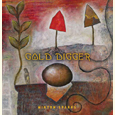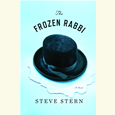The Labyrinths of Memory
In Aliens in the Prime of Their Lives, Mississippian Brad Watson returns to familiar territory—and reinvents it
Not so long ago, the late, great Barry Hannah observed that “being Southern isn’t always a graceful adjective; it’ll kill you sometimes.” Hannah, particularly in the still-tender aftermath of his recent passing, casts the longest shadow of any Southern writer since the Holy Trinity of Faulkner, O’Connor, and Welty. He knew well whereof he spoke. The frequently comic despair that drenched his inimitable sentences looms large in the latest offering from Brad Watson, Hannah’s former colleague at Ole Miss (Watson did a stint as Grisham Writer-in-Residence) and another native Mississippian. Watson’s much-lauded story collection Last Days of the Dog Men and his National Book Award-nominated novel The Heaven of Mercury positioned him directly in the line of the most formidable and intimidating tradition in American literature. His new collection, Aliens in the Prime of Their Lives, returns to the same territory of his earlier works, a terrain well-mapped by Hannah, Larry Brown, and the young Richard Ford: a post-Faulkner, post-modern South of bleak strip-malls, cheap motels, tacky Gulf Coast beaches, and haunted rural outposts surrounded by murky water, the faint odor of decay, and the ever-present specters of longing and loss.
These stories also tread the same emotional landscapes of Watson’s earlier efforts: broken marriages and disrupted families; sordid, sometimes preposterous chaos and violence; children and dogs (of course, dogs) struggling to comprehend the troubled, misguided adults to whom they are unfortunately entrusted. And yet this collection distinguishes itself with unique departures in style and narrative conceit. The effusive, adjective- and dependent clause-strewn Faulknerian sentences of the first two books have given way to a spare, understated style typified by dry, darkly comic musings, fragmented insights, and dreamy images drenched with nostalgia and regret. The narratives, particularly the brilliant title novella, upend expectations with their unique approach to the complications of perception and memory.
 Watson layers his pathos with heavy doses of humor, tempering his sorrowful truth telling with merciful moments of comic relief. In “Are You Mister Lonelee?” a dissipated small-time ad man copes with his wife’s departure to join a ‘commune’ of Harley-riding ‘artists’ by pretending she is dead. Unable to bear living in the house without his “dead” wife, the man moves into his office and leases his home to a corpulent woman who, in a gesture of sublimely mirthful pity, promises not to sit in his wife’s rocking chair: “I rented the place to her then and there,” the man explains. “I couldn’t believe she’d brought it up herself. It almost made me feel worse than if I’d said it.” In “The Terrible Argument,” an incompatible couple’s callow and ceaseless bickering leads up to a ridiculous self-maiming-by-pistol that is less distressing for its impact on their relationship than for its effect on their bewildered dog. As the story reaches its melancholy conclusion, Watson turns away from the consciousness of his human characters to reveal them through the reflections of their traumatized pet: “The man and woman came by one day and took her home, and were kind to her, but almost immediately the daily loud barking and snarling started up, and even if she could usually tell when it was about to start she was always frightened and wanted to run away. Now here she was beneath the coffee table, licking her paws, with their leash fastened to the collar about her neck, and nowhere to go.”
Watson layers his pathos with heavy doses of humor, tempering his sorrowful truth telling with merciful moments of comic relief. In “Are You Mister Lonelee?” a dissipated small-time ad man copes with his wife’s departure to join a ‘commune’ of Harley-riding ‘artists’ by pretending she is dead. Unable to bear living in the house without his “dead” wife, the man moves into his office and leases his home to a corpulent woman who, in a gesture of sublimely mirthful pity, promises not to sit in his wife’s rocking chair: “I rented the place to her then and there,” the man explains. “I couldn’t believe she’d brought it up herself. It almost made me feel worse than if I’d said it.” In “The Terrible Argument,” an incompatible couple’s callow and ceaseless bickering leads up to a ridiculous self-maiming-by-pistol that is less distressing for its impact on their relationship than for its effect on their bewildered dog. As the story reaches its melancholy conclusion, Watson turns away from the consciousness of his human characters to reveal them through the reflections of their traumatized pet: “The man and woman came by one day and took her home, and were kind to her, but almost immediately the daily loud barking and snarling started up, and even if she could usually tell when it was about to start she was always frightened and wanted to run away. Now here she was beneath the coffee table, licking her paws, with their leash fastened to the collar about her neck, and nowhere to go.”
Several of the stories read more like prose poems, drawing their power from Watson’s extraordinary control of language and imagery rather than from plot. Of course, Watson has not abandoned his taste for a good ol’ Southern Gothic yarn. In “Water Dog God,” a selection for the 2000 Best American Mystery Stories anthology, a rural hermit takes in his pregnant niece, a victim of incest at the hands of the hermit’s brother and nephews, only to see the fierce love he forms for the damaged child transform into uncontrollable violence and catastrophe. The story opens with the girl’s appearance in the hermit’s yard after a tornado, following one of the stray mutts who, the hermit tells us, are drawn to his home by “the whistle only they can hear, or words of some language ordinary humans have never known—the language that came from Moses’ burning bush, which only Moses could hear.” Though ostensibly a murder mystery, “Water Dog God” is a boldly Faulknerian pastiche of symbols and allusions that demonstrate Watson’s willingness to stand up to the ghosts of the greats to which he will inevitably be compared.
 Though the milieu is recognizable to readers of Watson’s earlier books or his most obvious influences, Barry Hannah and Larry Brown, Watson moves forward stylistically with a turn toward the surreal that is more reminiscent of the Latin-American masters Jorge-Luis Borges and Julio Cortázar, or even of Kafka, than of Faulkner, O’Connor, and their regional heirs. “Visitation,” originally published in The New Yorker and winner of a 2010 O. Henry Prize, chronicles the tortured efforts of a divorced man to know and be loved by his estranged adolescent son on a weekend at a cheap motel. The story unfolds in Carver-ish fashion and initially appears to be not much more than an above-average derivation of the ‘dirty realism’ genre until it veers unpredictably into the realm of the strange when the man, Loomis, ventures out into the night while his son sleeps and receives a devastatingly cathartic divination of both his present and his future.
Though the milieu is recognizable to readers of Watson’s earlier books or his most obvious influences, Barry Hannah and Larry Brown, Watson moves forward stylistically with a turn toward the surreal that is more reminiscent of the Latin-American masters Jorge-Luis Borges and Julio Cortázar, or even of Kafka, than of Faulkner, O’Connor, and their regional heirs. “Visitation,” originally published in The New Yorker and winner of a 2010 O. Henry Prize, chronicles the tortured efforts of a divorced man to know and be loved by his estranged adolescent son on a weekend at a cheap motel. The story unfolds in Carver-ish fashion and initially appears to be not much more than an above-average derivation of the ‘dirty realism’ genre until it veers unpredictably into the realm of the strange when the man, Loomis, ventures out into the night while his son sleeps and receives a devastatingly cathartic divination of both his present and his future.
As successful as “Water Dog God” and “Visitation” may be, they—and all the pieces that surround them—are mere preambles for the collection’s centerpiece, the title novella, which makes even the best of the other stories seem like the cetology chapters in Moby Dick: good on their own, but, in the larger context, thematic and stylistic exercises leading up to the big act. “Aliens” begins, like “Visitation,” as a ‘grit-lit’ diary of down-and-out yearning and despair told from the point of view of a young man who has married his pregnant high school girlfriend and moved her into a suffocated attic apartment in the naïve hope that their teenage love affair will somehow survive the interference of an unwanted child. But a bizarre midnight visit from a peculiar couple the narrator takes to be a pair of escapees from the mental hospital down the road but who claim to be aliens “in the prime of our lives” triggers a plot twist that is at once dazzling, heartbreaking, innovative, and altogether convincing. Not much can be said about “Aliens” without spoiling it, except that Watson’s work is at its most authoritative when he challenges readers to stare down their most painful memories and agonizing failures, and in doing so reminding us that we can never truly understand or make perfect sense of them.
Here and throughout the collection, Watson has learned the power of ‘white space’: ambiguity, omission, and indeterminacy. He has also demonstrated persuasively that the old places and the old paths of memory still promise fresh discoveries. “I have a hard time not living the past constantly,” Watson has said, and, according to Barry Hannah, “Intense nostalgia breeds stories.” The arrival of Aliens in the Prime of Their Lives just as we have lost one of our most distinguished voices reassures us that there is at least one worthy heir to continue the hard work of navigating the labyrinths of memory with candor, wit, compassion, and a voice that honors its forebears both through its comforting familiarity and its fearless and undeniable originality.
Brad Watson will read from Aliens in the Prime of Their Lives at Burke’s Book Store in Memphis on March 30 at 5:30 p.m.


